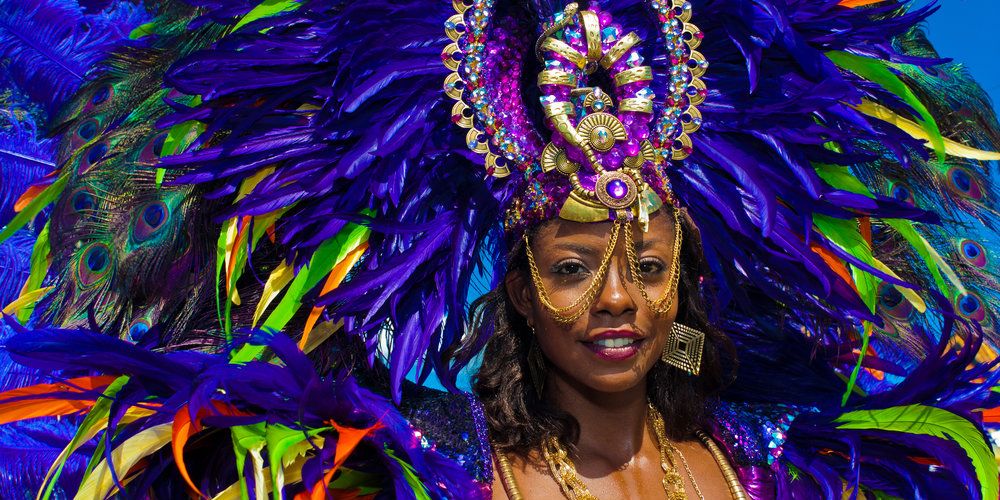Sex, Sensuality, & Womanhood Through The Caribbean Lens

by Bee Quammie
“It’s raining
My body’s calling
I’m in neeeeeed
Of my darling…”
- Lady Saw
I still remember my father bringing home that Lady Saw vinyl, putting it on his turntable in our basement, and feeling the bass pulse through our little house. I still remember Saw’s gritty voice singing about her sexual appetite and how she wanted to be satisfied. I still remember my mom fussing at my dad for playing that “slackness” around me. “What kind of example are you setting?” she asked.
Little did she know, it was the best kind.
Caribbean artists like Destra, Tanya Stephens, Alison Hinds, Patra, and the aforementioned Lady Saw unknowingly lent a voice to help shape my own personal sexual growth. Hearing them speak boldly and unapologetically about how/when/where they will experience pleasure was revolutionary, and gave me an alternate view of my role as a sexual being. So many of my peers and I grew up with the thought that the feminine existed solely as a passive plaything for the masculine - but these voices gave way to something different. When it came to sex, themes of control, autonomy, and self-assurance sans shame all reverberated through these women’s music, and gave me a new lens with which to navigate the possibilities of pleasure.
Speaking of pleasure, I never knew I could derive so much from dancing through the streets of downtown Toronto, covered in feathers and glitter and paint and powder and not much else. While I have yet to experience the grandeur of Trinidad or play mas in my parent’s native home of Jamaica, Toronto’s Carnival has gotten me more than prepared. For a girl who used to spend all her summer days in big clothes because she hated her body, choosing to don a mas costume outside of the comforts of my bedroom was a big step.
Paralleling the themes of empowerment and defiance that weave through the history of Carnival, I’ve felt the same each year I’ve played mas. My body confidence doubled each time I was complimented but tripled each time no one said a thing, because it made me feel like I belonged and that my presence wasn’t abnormal. I absorbed body confidence from the women who came ready to wine in bodies that expressed sensuality through the “imperfections” of wide hips and marked bellies, and I wanted to match their power. I cultivated a new relationship with my body through Carnival, Caribbean music and dance - one that taught me how to fearlessly engage my body in movement and how to access the ancestry embedded in my hips and waist.
The heritage provided to me by my parents showed me in a unique way that embracing your sensuality wasn't just okay, it was natural. Growing from a girl to a woman in a society that makes you fear and question your sensuality and the accepted expressions of it, I've been lucky to find a small but significant place that allows me to just be.
Caribbean culture (like any other) is imperfect, and the very ideas of sensuality and sexuality are fraught with contradiction. Expressions of sexuality that aren't staunchly heterosexual can be met with life-threatening consequences. Patriarchal and misogynistic themes permeate the culture in highly troubling ways. Straddling the Madonna-whore complex of being a “respectable” woman - a top student, a dutiful daughter, a doting wife and mother - and one who likes to wine to explicit lyrics can be exhausting, and the incessant demand to justify that duality is spiritually taxing (and often futile) work. These problematic areas further inform my presence as a sexual being - what I will and won't accept, what I do and don't like, what I critique and challenge.
Photo Credit: John de la Bastide / Shutterstock.com
Bridget "Bee" Quammie is a Toronto-based healthcare professional, writer, social media consultant, and founder of 83toinfinity.com. Recognized by Black Enterprise nd the 2014 Black Canadians Awards for her digital work, Bee aims to live '83 To Infinity's motto: "It's never too late to learn something new, do something new, or be someone new." Follow her on Twitter at @BeeSince83.

No comments: